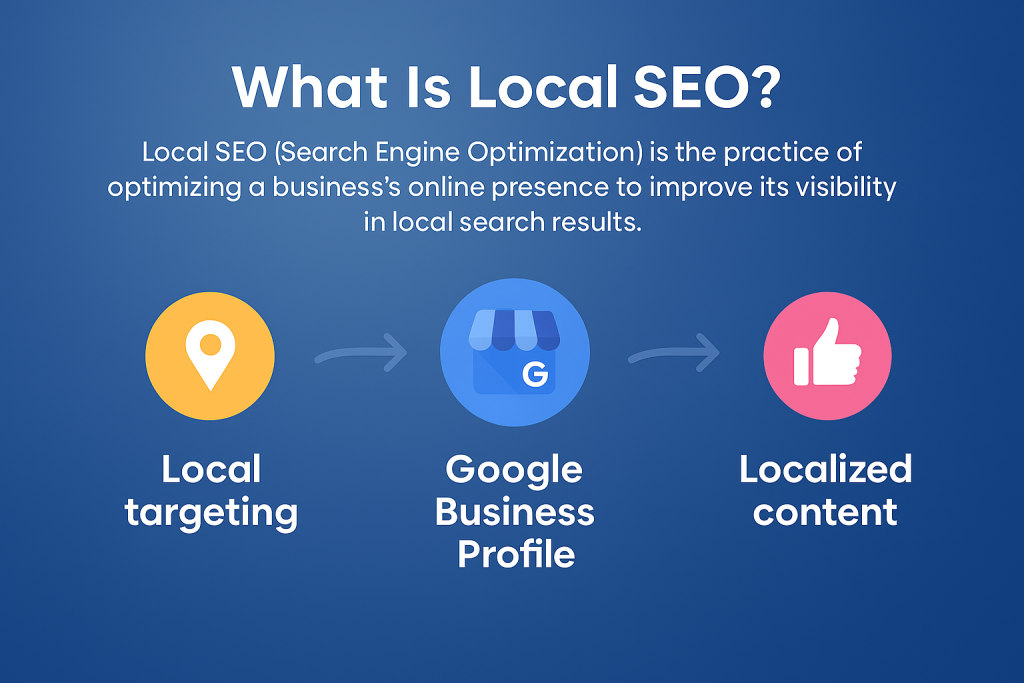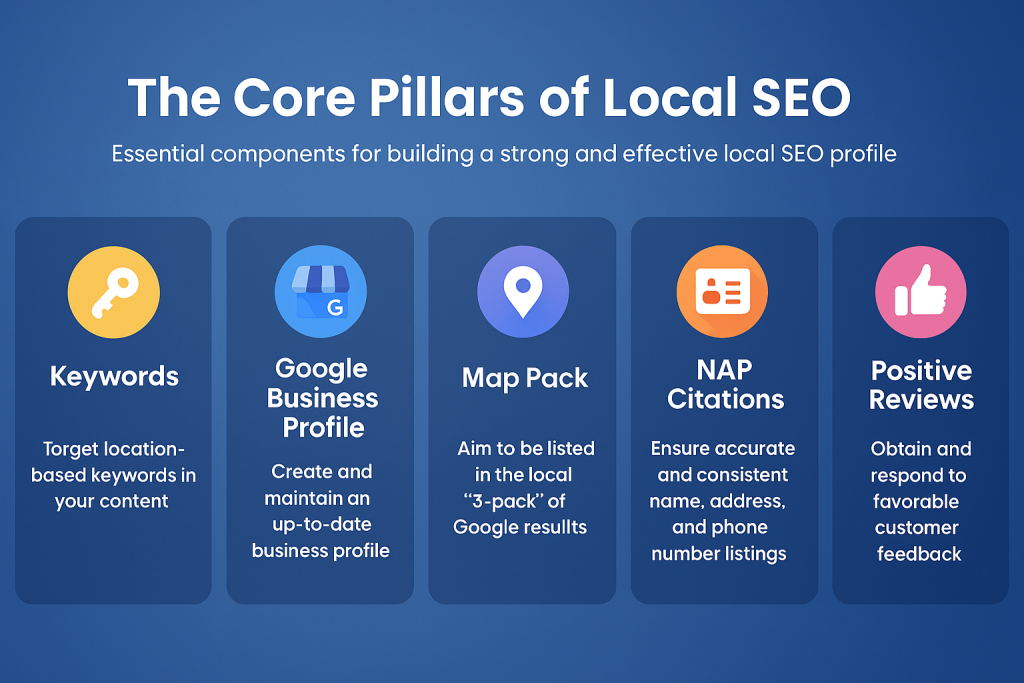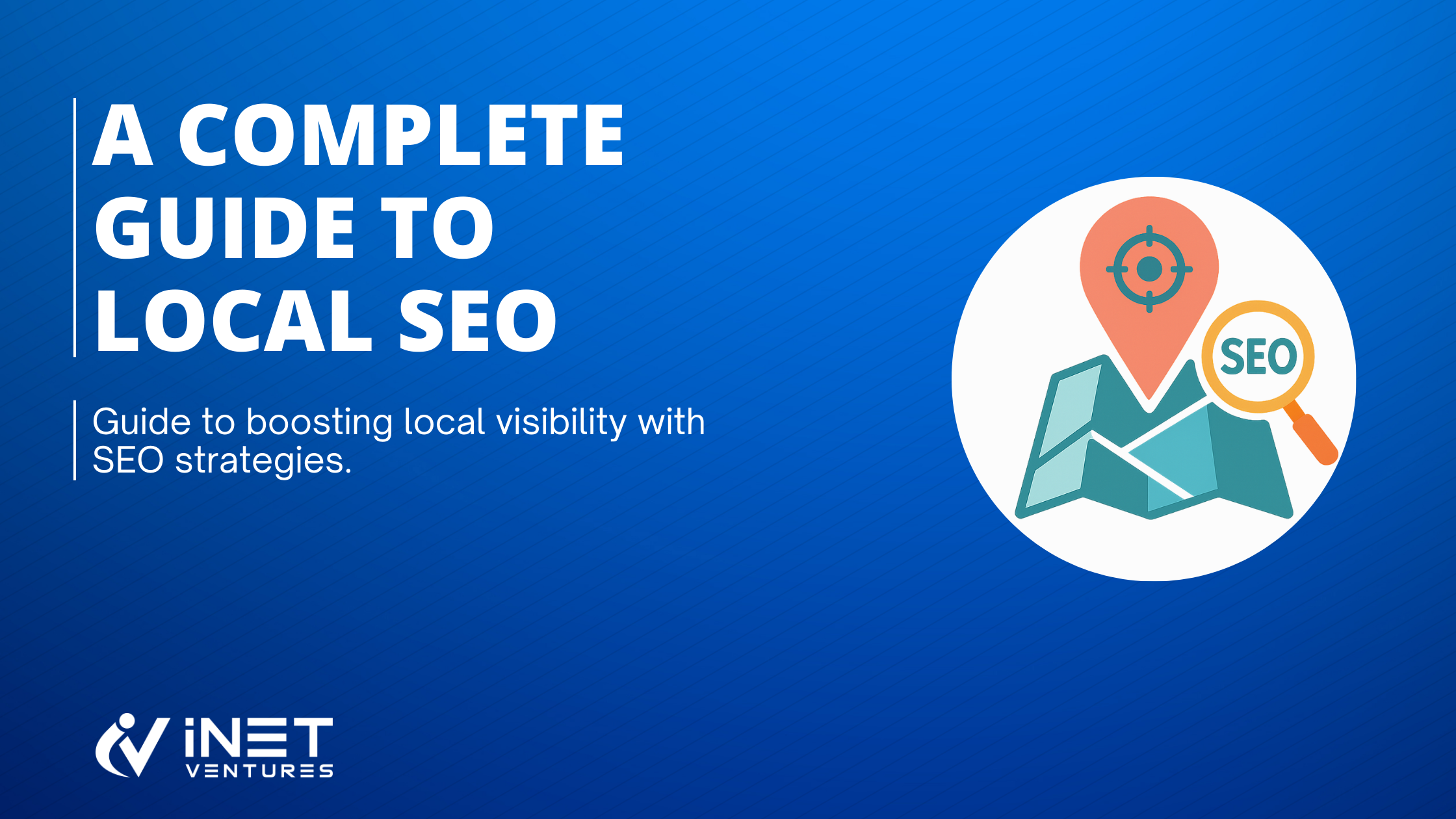SEO is one of the most important elements of discoverability online. If your site is not optimised for search engines like Google and Bing (yes, there are others!), then you may have trouble attracting customers and building a profile for yourself.
If your business depends on local custom to survive and thrive, then local SEO is going to be even more important for you than building a general optimisation profile, and best practices for local SEO are a little different to the regular kind.
Here’s our complete beginner’s guide to local SEO!
What is local SEO?
First, it’s important to lay down a definition of what local SEO is.
In essence, local SEO refers to the ways in which your business’ site and profile are optimised for those in your local area to find you quickly and easily.
If your business is based in Liverpool in the UK, for instance, then you should be looking to improve online visibility in Liverpool in order to ensure that customers or clients in that city find you more readily.
Some types of site, like recipe pages, specialist news platforms, and digital e-commerce outlets, don’t necessarily need a strong local SEO presence in order to succeed.
It stands to reason, though, that if your site, business, or venture has any kind of local skew, then you’re going to want to build a powerful local SEO profile.

What are the core pillars of local SEO?
There are a number of core elements that make up the basis of local SEO profile building.
Keywords
The first – and perhaps most important – is to hit keywords based on the location of your business.
Local SEO involves ensuring that your area of operation is front and centre when it comes to advertising your services. In copy, you should be mentioning your location whenever it’s relevant to do so.
Google Business Profile
It’s not just about copy, though. You should also be building your Google Business Profile to ensure that it contains all of the information customers need to find you, and it’s important to keep it regularly updated with changes and new info as well.
That Business Profile page will also help you to secure a place in the Map Pack, which is the list of results at the top of a page when someone searches for a kind of business in their area.
Map Pack
Obviously, you should want to rank in the Map Pack; doing so means that customers will see your business before they even scroll down, and that means they’re more likely to click on your business rather than someone else’s.
The Google Map Pack is also referred to as the Local Pack, which should tell you just how important it is when it comes to optimising for local SEO!
Unfortunately, there’s really no quick and easy way to make sure you end up in the Map Pack; hopefully, it should happen if you follow all of the other best local SEO practices.
It is, however, helpful to make sure your business is visible in as many places online as possible, and to ensure that you’re getting plentiful reviews (if you can), as well as replying to as many as you feel able to.
NAP citations
NAP citations, which involve your business’ name, address, and phone number (hence NAP), are also important for your local SEO strategy, as they reinforce your business’ presence in its local area.
You should be listing your business’ NAP on your site’s contact info page, and if you can, you should also make it visible somewhere on your homepage; perhaps on the top banner.
It’s also very important to make sure that your NAP is consistent in every place in which it appears. If there’s a discrepancy in your NAP, it could result in a customer trying to reach you with the wrong credentials.
It’s tough to build these; you can list your business’ NAP yourself, but others can also do so, and if that information ends up outdated, then you’ll need to make sure you reach out to have them change it at their earliest convenience.
Positive reviews
Obviously, positive reviews help customers to see that your business is worthwhile, but they’re also important when it comes to rankings.
It’s been reported that positive reviews help your site to rank higher, and the more recent and high-quality those reviews happen to be, the better it will be for your site.
That’s why a lot of restaurants and other local businesses will encourage positive reviews from customers if they’ve enjoyed the service they received; it helps that business to become more visible to others.
Replying to your positive reviews is also a great way to build your local SEO profile. You could even reply to some of the more constructive negative reviews; customers like to see a responsive business.

Should I still focus on standard SEO as well?
In a word: absolutely. While it’s important to make sure that your local SEO strategy is robust, you should also be making sure that you’re engaging with regular SEO best practices.
These include building backlinks, constructing copy that’s optimised for SEO, and making sure that your site’s pages are interlinked, as well as all of the other ways in which standard SEO benefits your site.
Working to make sure that your site is both emphasising its local SEO credentials and efficiently constructed for other customers to find you is of the highest importance.
Even if you don’t intend to try and attract business outside your local area, standard SEO practices don’t just apply to global businesses; they’re good ways to increase the chances that Google notices you and amplifies your voice.
Conclusion
We hope this beginner’s guide to local SEO has been useful for you. If you follow the practices we’ve outlined above, then you’re significantly increasing your chances of being seen by Google’s (often merciless!) algorithm.
To recap, here’s what you should be doing if you want to make sure you’re covered when it comes to local SEO.
- Ensure your NAP citations are consistent
- Seek out positive reviews and reply to them (and some of the negatives too!)
- Claim your Google Business Profile
As the founder of iNet Ventures, James deeply understands the world of SEO, link building, growth, and strategy. After achieving remarkable results for agencies and websites, his approach combines industry knowledge with forward-thinking tactics, which embark on analytical tools and AI.


